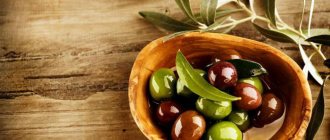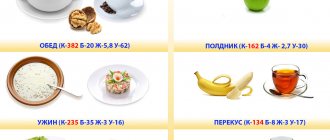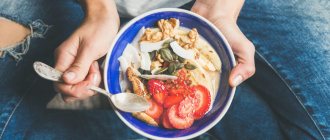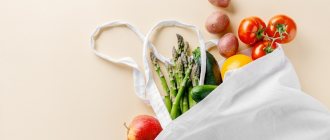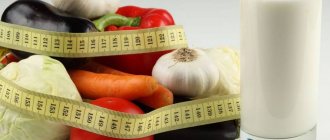How to change your diet forever
Having become a vegan, you will have to change your life: you will no longer be able to quickly grab a bite to eat in the first cafe you come across, because you will have to be more selective with your nutrition.
If you are reading this article, then all the pros and cons of a vegan diet have already been found, and the issue of switching to a balanced diet has already been resolved or is close to being resolved. Now you are faced with the task of learning as much as possible about the new diet. And rightly so, because good preparation is the key to a successful transition to veganism, so a couple of useful tips will not hurt you. These recommendations will be enough to ease the period of adaptation, and the likelihood of a breakdown at the sight of a juicy steak will become zero.
The transition should be gradual. Of course, you can cherish the hopes that you will change your diet in one day and never return to animal food, but as practice shows, no one succeeds in such a maneuver. There is no need to rush right off the bat - change your diet gradually. It is impossible to get rid of the habit of eating junk food with the snap of a finger. If you want to switch to a new diet without unnecessary problems, then the right decision would be to gradually change the menu, adding vegan dishes and removing animal foods.
Animal products need to be replaced. By listening to this advice, you will avoid the mistake of most new vegans. Let's not forget that we are all human, and drastic changes in diet will greatly affect our health. A sudden change in diet will not lead to anything good: at best you will lose your temper, and at worst you will lead your body to vitamin deficiency. Therefore, do not test your body’s strength and gradually replace your usual animal products with vegan alternatives.
Vegan does not mean “healthy person”. This diet, like any other, has complex effects on the body, and its results largely depend on your approach.
Here is the latest scientific data on the benefits and harms of a plant-based diet.
Prevention of cardiovascular diseases
Two large cohort studies tell us that vegetarians are much less likely to die from coronary heart disease than meat eaters. A low risk of death was observed in both lacto-ovo vegetarians and strict vegans.
Other studies have concluded that vegetarians have a lower risk of hypertension than meat eaters. Similar results were obtained in a study of the health of Adventists on the island of Barbados.
Vegans are slightly less likely to suffer from hypertension than other vegetarians.
type II diabetes mellitus
One of the best diets for weight loss, a vegan diet is considered a reliable defense against obesity and diabetes. Low-calorie, high-fiber plant foods have a relatively low glycemic index.
In the Adventist community, where one in three eat a strict meat-free diet, vegetarian eating plans are associated with low BMI, and weight is correlated with meat consumption in both men and women.
In a large study of American women's health, the authors found an association between consumption of red meat (especially processed meat) and the risk of diabetes after adjusting for BMI, calorie intake, and physical activity.
It is reported that the incidence of type II diabetes among Adventist vegetarians was half that of meat-eaters who lead the same lifestyle.
Oncological diseases
A plant-based diet provides a number of cancer protective factors. Vegetables, berries and fruits contain a cocktail of phytochemical molecules with antioxidant, immunomodulatory and antitumor effects.
According to a report by the World Cancer Research Fund, vegetables and fruits reduce the risk of cancer of the lungs, esophagus, mouth, stomach and others. Regular consumption of legumes may protect against prostate cancer and stomach malignancies.
The cancer protective properties of a vegan diet are associated with fiber, ascorbic acid, carotenoids, flavonoids and other phytochemicals in the diet.
Vegans tend to have lower rates of cancer than the general population.
Veganism and anemia
A vegan diet does not contain easily digestible animal iron. This could result in iron deficiency anemia, but vitamin C and other organic acids found in vegetables and fruits can significantly improve the absorption of iron from food.
Recent studies have shown that the incidence of iron deficiency anemia in vegetarians is similar to that in non-vegetarians.
However, vegans are susceptible to cyanocobalamin (vitamin B12) deficiency, which results in a higher incidence of megaloblastic anemia. All vegans should obtain cyanocobalamin from fortified foods or vitamin supplements.
Plant-based diets are typically rich in folacin, which may mask the hematologic symptoms of B12 deficiency. Therefore, the problem may go undetected until neurological symptoms appear.
Veganism and osteoporosis
Although there is very little data on bone density in vegans, recent evidence suggests that they have slightly worse bone health compared to meat eaters.
Vegan women are found to be getting insufficient protein and calcium. This may cause decreased bone mineral density and a susceptibility to hip fractures. Vegans are also more likely to be vitamin D deficient.
Other health effects
According to observations, strict vegans are less likely to suffer from dementia (especially the vascular form). This may be explained by the better condition of the brain vessels and lower blood pressure compared to meat eaters.
However, vegans who severely limit themselves in sources of B12 are more likely to suffer from hyperhomocysteinemia, which provokes arterial and venous thrombosis.
Excessive dietary protein intake can worsen existing chronic kidney disease (CKD) and cause problems in people with normal kidney function.
Soy vegan diets have been shown to be beneficial for people with chronic kidney disease and may slow the progression of kidney failure.
Breakfast
Any doctor will tell you that breakfast is the most important meal of the day. In many ways, your mood during the day will depend on the start of the day, so it is important to prepare something nutritious and tasty for breakfast.
You can start the day with light porridge cooked in water. Add nuts or dried fruits to this dish and every evening you will fall asleep thinking about the delicious porridge that awaits you in the morning.
Another dish that will pleasantly surprise you with its satiety and taste is a smoothie or cocktail. You can feel like a chef at an expensive restaurant, adding various ingredients to the drink and experimenting with taste. The choice of ingredients depends only on your imagination - various fruits and vegetables, berries, nuts, cereals. In general, everything that comes to your mind.
Be sure to try starting your day with a tofu omelette. Don't be surprised, this cheese is a universal product, and an omelette is not the strangest dish that can be prepared from it. You will often encounter it in various vegetarian recipes, so don’t be afraid to experiment with it and add it to your dishes.
The favorite recipe for most vegetarians is fruit salad. The abundance of fruits will allow you to come up with something new every day. Experiments are welcome - add berries or nuts to the salad, and find your favorite recipe with which you will surprise your guests.
Vegetarian masters even came up with their own recipe for pancakes. All you need is 2 cups of water, 1.5 cups of flour, 1 tablespoon of sugar and half a teaspoon of soda. Mix it all in one bowl until smooth, and the dough is ready, all you have to do is fry it.
Balanced vegan menu for the week
Once you decide to become a vegan, you need to be more careful about your diet.
The vegan diet should be designed in such a way that the body not only receives the necessary calories, but also vital vitamins and mineral compounds. To do this, you should alternate the foods and dishes you eat.
The second important point when switching to a vegan diet is the correct distribution of food throughout the day.
For breakfast
Vegans are recommended to eat porridge with water (with plant milk) or vegetable smoothies and cocktails. An abundance of complex carbohydrates will not only give you the desired satiety, but also give you energy.
For lunch
It is better to prepare lean soups or borscht; hot food is necessary for the smooth functioning of the gastrointestinal tract. The second one is a small portion of stewed or baked vegetables.
For dinner
You can prepare vegetable casseroles, cereal dishes or salads. It is important not to overload the digestive system, but not to deprive the body of nutrients.
As a snack, you can use fruits, berries, dried fruits, nuts, in moderation.
Dinner
A hearty breakfast should be continued with something equally healthy, for example, soup. There are many recipes, but the essence is approximately the same - cook vegetable, mushroom or any other broth, and then add the rest of the ingredients. Don’t forget to add various spices and seasonings to the soup; they will only improve the taste of the dish and give it an unforgettable aroma.
Vegan cutlets with a delicious side dish will perfectly satisfy your hunger. As ingredients for cutlets, you can take anything from beets to oatmeal. Let your imagination run wild and find your favorite recipe. No one limits you in the side dish either; pasta, rice, potatoes or a mixture of vegetables are suitable.
Experiment and make vegan burgers. To do this, you will need to buy or make vegetarian buns, and between them put whatever your heart desires. Don't forget the tofu and vegan patties, they make a delicious addition to your burgers. This dish will diversify your menu for the week, while replacing harmful public catering with a healthy alternative.
No one forbids using cereals from breakfast recipes for lunch; they are perfect for a lunch break and will fill your body with energy.
Briefly about sweets
Many vegans avoid sweets, claiming that they are unhealthy. This is fundamentally wrong. Sweets do not have to be harmful, the main thing is to monitor the composition and avoid sweets with milk, eggs and other animal products. But don’t be alarmed ahead of time, not all sweets contain animal products.
Peanut butter, cookies, cakes, maple syrup, dark chocolate, ice cream - you can buy all this without unwanted elements in the composition, or you can make them yourself at home.
What is a vegetarian diet
Refusal of animal products when following this diet is its main difference from analogues. There is a division of diet types depending on what will be excluded from similar products:
- strict vegetarian diet. It implies a complete rejection of all types of animal products: meat, chicken, fish, shellfish, cottage cheese, milk, eggs and fermented milk products. A fairly strict diet requires mental preparation, since it can differ significantly from the usual menu;
- not a strict vegetarian diet. Here the refusal is carried out from meat, chicken. There may be restrictions on the consumption of fish and seafood. Dairy and lactic acid products, eggs are usually allowed for consumption.
The choice of vegetarian diet option is made depending on personal preferences. If your usual diet contained more animal products, then completely abandoning them may be difficult. It is recommended to try a non-strict diet first: it is less strict and easier to stick to because it is varied, tasty and balanced.
A vegetarian diet is varied, tasty and balanced. It is permissible to be on such a food system for a long time: no harm to health, a positive effect on the body and eliminating the risk of returning lost kilograms - these are the important characteristics of the diet. Reviews and results of a diet excluding animal products are positive. Losing unnecessary weight, being lighter in body, being active and having extra energy are said to be added bonuses when following this diet.
Interesting! There are additional varieties of vegetarian food. Veganism is an entire philosophy based on humane treatment of animals. Eating according to such a system is characterized by an ethical component and requires a meaningful rejection of the usual animal food.
Beverages
Unfortunately, you will have to give up milk, coffee and store-bought tea, because vegan nutrition excludes them. Don't despair, because you have alternatives. Milk is replaced with vegetable milk, sometimes you can find it in the store, but cooking at home does not require much hassle. You will forget about store-bought tea as soon as you try herbal tea. It is not just tasty, but also healthy. Also don’t forget about smoothies, which will be an excellent alternative to store-bought yogurts. Juices that you can make from apples, oranges and any other products that you find in your refrigerator are great thirst quenchers.
